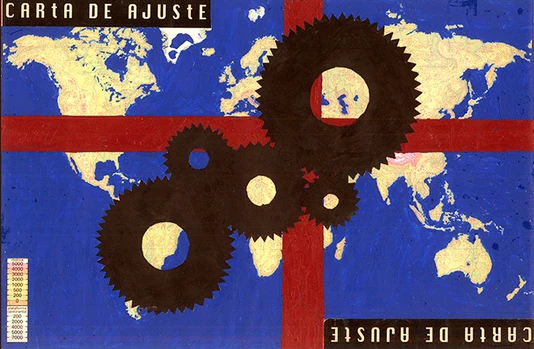The Aníbal Quijano Chair
Curated by Rita Segato
Curated by Argentinian anthropologist and feminist Rita Segato, the Aníbal Quijano Chair looks to open a channel of collective reflection-action from the contributions of Latin American decolonial thought, particularly Peruvian intellectual Aníbal Quijano (1928–2018), with the aim of incorporating it into the multiple viewpoints that today deprive modernity of its primal pledges.
Taking Quijano’s premise of “thinking in conversation”, the Chair puts forward formats of collective work, framed in an annual encounter, workshop and seminar. Equally, the programme monitors and supports different research projects developed over the year, stemming from the problems addressed. The ultimate aim is to share and combine reflections and approaches to activate the legacy of subversive thought, promoted by Quijano, which adheres to the long process of the decolonialisation of power and knowledge and to situating it as the central historical conflict of our time.

Miguel Benlloch, Carta de ajuste (collage), 1994
Cortesía Archivo Miguel Benlloch
Situating ourselves in the present and situating the present as part of a broader and more complex temporality is a political stance (resuming the idea of Argentinian-Mexican researcher Mario Rufer) that is unthinkable on the margins of the theory of Quijano’s coloniality of power. This contribution goes beyond the cultural sphere and lays the foundations of a profound questioning of the colonial epistemology of modernity at a time when neoliberalism is becoming consolidated in Latin America. Quijano’s thought, with its seismic capacity to stir up and alter familiar territory, proves indispensable to understand the movement which today shakes Eurocentric historicisation. Quijano’s work shows us that in a present which is so rocked by wreckage — this is no metaphor, but rather a literal state that devours thousands of lives — single paths do not exist. Rather, there is a plural whole which is open and taut with voices, knowledge and practices.
Chair activities
The problem is, however, that […] the Eurocentric perspective was taken on by predominant groups as their own, leading them to impose a European Nation State-formed model for power structures organised around colonial relations. Today we still find ourselves in a labyrinth where the Minotaur is always visible, yet with no Ariadne to show us the desired way out […] As a result, it is time to learn to free ourselves from the Eurocentric mirror, where our image is always, necessarily, distorted. It is finally time to stop being what we are not.
Aníbal Quijano
“Colonialidad del poder, eurocentrismo y América Latina” (The Coloniality of Power, Eurocentrism and Latin America) in Cuestiones y horizontes: de la dependencia histórico-estructural a la colonialidad/descolonialidad del poder, 2014
Rita Segato
Curator of the Aníbal Quijano Chair
A professor of Anthropology and Bioethics in the UNESCO Chair at the University of Brasilia (Brazil), she was an expert witness on the trials of the Sepur Zarco case in Guatemala, where sexual violence was tried and prosecuted, in the form of domestic and sexual slavery, as a war strategy used by the State. Her main fields of interest include new forms of violence against women and the contemporary consequences of the coloniality of power. Among her most important works are: La Nación y sus Otros: raza, etnicidad y diversidad religiosa en tiempos de políticas de la identidad (Prometeo Libros, 2007), Las estructuras elementales de la violencia. Ensayos sobre género entre antropología, el psicoanálisis y los derechos humanos (Prometeo Libros, 2013) and La crítica de la colonialidad en ocho ensayos. Y una antropología por demanda (Prometeo Libros, 2015).
Fundación Banco Santander

Open Chair activities
Annually scheduled spaces for dialogue and debate which seek to rethink the present from multiple perspectives.
![Primer mapamundi chino al estilo europeo. Matteo Ricci, Kunyu Wanguo Quantu (坤輿萬國全圖) [Un mapa de la miríada de países del mundo], 1602](https://recursos.museoreinasofia.es/styles/small_landscape/public/Actividades/catedra-anibal-quijano-snippet.png.webp)



